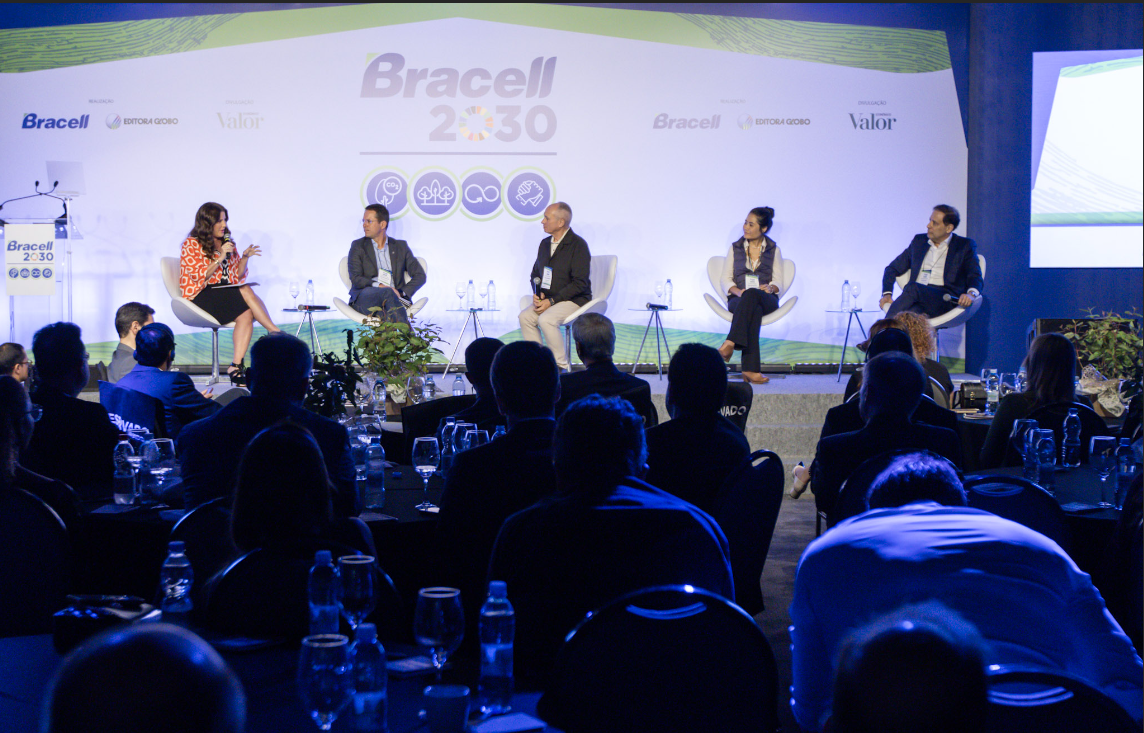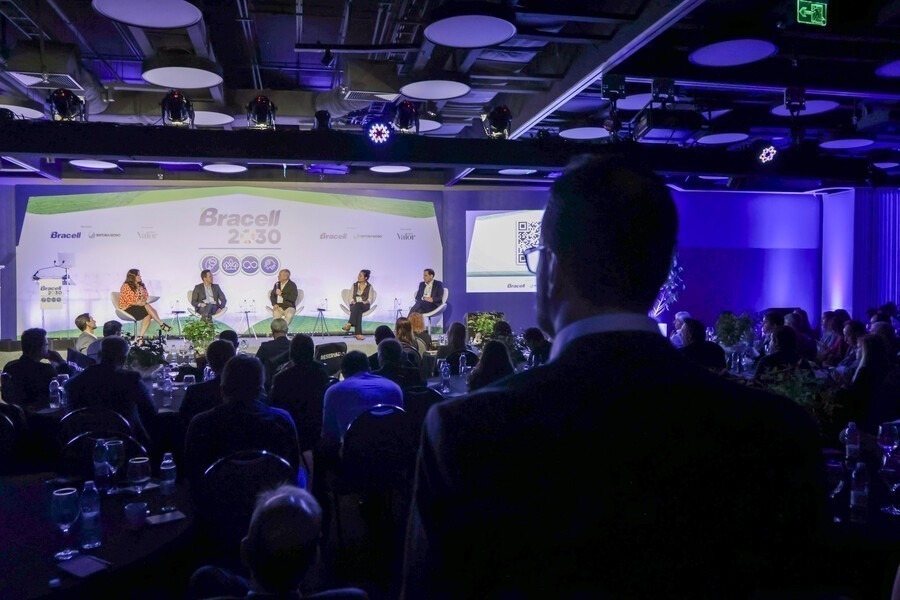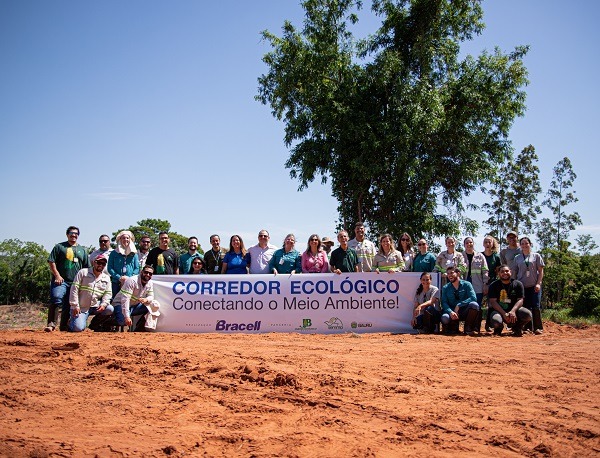Held in São Paulo, the event was attended by representatives of the Brazilian Tree Industry (Ibá), the São Paulo State Government and the NGO WWF

Bracell, a global leader in the production of dissolving pulp, held on Tuesday, 31, the Bracell 2030 Seminary: construction of a legacy for a sustainable future. In order to expand the debates about sustainability, the company brought together authorities and experts on the subject to discuss the necessary actions to build a more inclusive and sustainable future. During the event, the company also launched its strategic sustainability agenda for 2030, which brings together goals and commitments to expand the positive impacts of its value chain operation.
During the event, Bracell President Praveen Singhavi stressed that businesses and sustainability are two faces of the same coin and that he continually invests in cutting-edge technologies to promote better operational efficiency in the use of natural resources and reduced GHG emissions in their industrial and forest operations. “Forests, water, soil and climate are intrinsically linked to our business. In considering this and placing people and communities at the center of everything we do, we can play our role in the transition to a more inclusive and sustainable world.” According to the executive, the Bracell 2030 plan defines our strategy and sustainability priorities for the coming years focused on generating positive impact on climate, nature and people.
Mediated by journalist Christiane Pelajo, the event also featured a debate panel on how companies in the sector can advance further on the sustainability agenda and have a positive impact on the country and society. Among the panelists were: Paulo Hartung, economist, former governor of Espírito Santo and executive president of the Brazilian trees industry (Ibá); Liv Costa, Corporate Management Director of the São Paulo State Environmental Company (Cetesb); Mauricio Voivodic, President of WWF-Brazil; and Luiz Dutra, Bracell’s vice president of corporate affairs.
“Historically, companies report their initiatives to their shareholders. But modern companies know the importance of reporting to the society. (…) The pulp sector is an outlier in Brazil from the point of view of value-added generation. It plants, harvests, replants and conserves”, said Paulo Hartung.
“Bracell has ESG pillars permeating all its business strategy. Therefore, in addition to our own operation, we value suppliers, partners, communities and other audiences of interest aligned with these premises and act to take a benchmark position for the sector. We believe that only then can we deliver concrete and sustainable results and impact on the entire value chain”, said Luiz Dutra.
“When we look at Bracell and the partnership we have, via Forest Foundation, we are talking about restoration, in protection related to fires, education and environmental awareness, research and technology. This all has to do with sustainability of environmental preservation”, says Natália Resende, Secretary of Environment, Infrastructure and Logistics of São Paulo. Liv Costa, in turn, spoke about the relevance of companies’ social and environmental performance. “Public-private partnerships and everyone’s involvement are very important to achieve goals as a society”, she said.
Márcio Nappo, Bracell’s vice president of sustainability and communication, stressed that with Bracell 2030 the company defines a clear roadmap for sustainability, with ambitious goals and commitments aligned with the UN sustainable development objectives. “Through the concrete actions of Bracell 2030 we can build a better future for the pulp and paper industry in Brazil, positioning Bracell as one of the leading voices in sustainability in our sector,” he said.
In addition to presentations and debates, government representatives, partners, customers, opinion makers and employees were able to know some initiatives and projects of the company, such as the Green Pharmacy Project, in the Quilombola Cangula community, in Alagoinhas (BA), created to enhance the ancestral knowledge of the community in the creation of natural-based products, such as flavorings, medicines, candles and soaps. Another highlight of the event was the presence of the 100% electric and large truck that is being tested by Bracell for the transport of pulp and which was externally parked, reinforcing the existing actions of the company to be positive for the climate.



